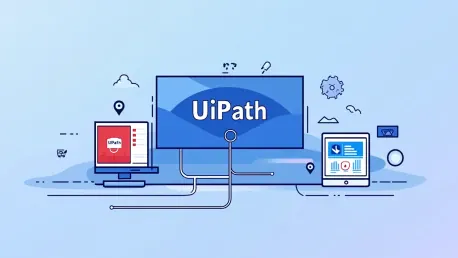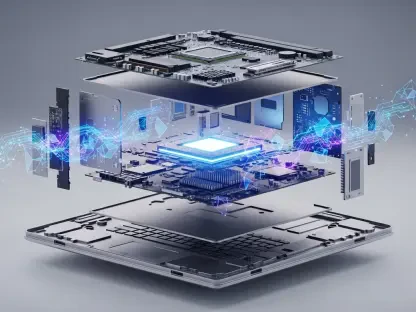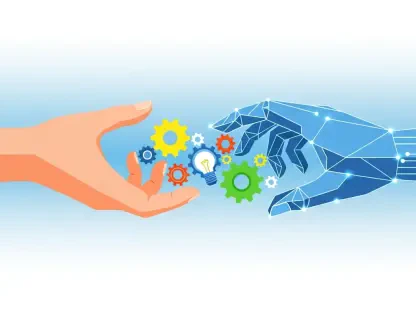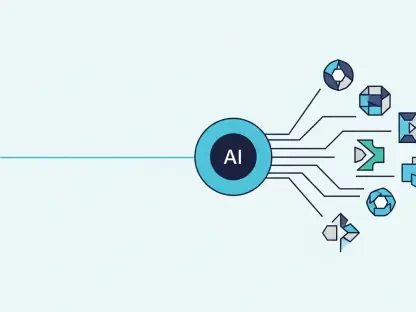UiPath has recently announced a transformative new vision centered on “agentic automation,” marking a significant evolution from their well-established robotic process automation (RPA) technologies. This exciting development combines AI agents, robots, people, and models to deliver comprehensive, AI-driven transformations across various enterprise processes.
Agentic Automation Introduction
Agentic automation represents an integration of AI agents with robots and humans to automate complex and dynamic business processes. This innovative approach aims to enhance efficiency, adaptability, and cost savings while handling diverse use cases that were previously unautomatable. By bringing together the strengths of AI and human capabilities, UiPath seeks to push the boundaries of what automation can achieve in the corporate environment.
Technological Breakdown
Within the realm of agentic automation, robots are primarily focused on repetitive and rule-based tasks, significantly enhancing efficiency and reducing the need for manual effort. On the other hand, AI agents are designed to adapt to changes, make intelligent decisions, and manage complex tasks autonomously. This dynamic combination allows businesses to tackle a broader spectrum of tasks and challenges with greater precision and intelligence.
Strategic Implications
The strategic integration of robots and AI agents broadens the potential impact of automation on business growth and employee productivity. AI agents, in particular, extend automation’s scope to encompass end-to-end processes by making independent and dynamic decisions. This capability allows businesses to achieve a higher level of operational efficiency, driving growth and enabling employees to focus on more strategic tasks.
Platform and Ecosystem
AI agents will leverage the existing ecosystem of tools and automations developed by UiPath customers. The UiPath Platform ensures robust governance, control, and reliability and includes human-in-the-loop capabilities to refine the most critical decisions. With these features, businesses can trust that their automation processes are not only efficient but also governed by stringent oversight.
Agentic Orchestration
Agentic orchestration refers to the process of designing, implementing, operating, monitoring, and optimizing complex business workflows. The main objective is to seamlessly manage automation, intelligent insights, modeling, monitoring, and management within a single platform. The benefits of proper orchestration include compliance, deterministic outcomes, and dynamic adaptability, ensuring that agents, robots, and humans work together harmoniously for optimal results.
Trends and Consensus
There is an overarching trend towards a more integrated and intelligent automation landscape where AI agents and robots work symbiotically. This evolution aims to address complex business challenges, driving more profound business outcomes and fostering innovation. The consensus is that this new level of automation will unlock significant productivity gains and streamline business operations.
Summary of Findings
UiPath is innovating in automation by transitioning from pure RPA to agentic automation, reflecting a forward-thinking evolution in enterprise solutions. This shift aims to automate entire business processes, thereby bringing unprecedented efficiencies and adaptability. Utilizing a unified platform, UiPath offers comprehensive governance and orchestration capabilities, ensuring seamless integration and high reliability.
Conclusion
UiPath has recently made waves with its announcement of a groundbreaking new vision called “agentic automation.” This marks a significant evolution from their already successful robotic process automation (RPA) technologies that many enterprises have come to rely on. The concept of agentic automation introduces an innovative blend of AI agents, robots, humans, and models, aimed at delivering expansive, AI-driven transformations across a multitude of enterprise processes.
This new direction emphasizes integrating different elements—AI agents acting autonomously, robots performing repetitive tasks, human workers leveraging these tools, and sophisticated models predicting outcomes and optimizing workflows. By bringing these diverse components together, UiPath aims to enhance efficiency, elevate productivity, and foster more intelligent decision-making frameworks within organizations.
In a world where the pace of business and technological change is accelerating, UiPath’s agentic automation stands out as a comprehensive, forward-thinking approach. This initiative is poised to help businesses navigate the complex landscape of digital transformation, ensuring they remain competitive, agile, and innovative in an ever-evolving market.









